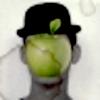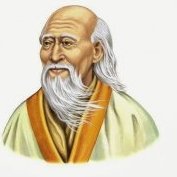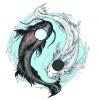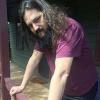Search the Community
Showing results for tags 'Te'.
Found 7 results
-
Ni hao, Dao Bum, my story is a simple one but one I have never attempted to form into words. I was always into the martial arts, this proved a soft entrance to the Eastern spiritual traditions and forms of internal cultivation. Through meditation, qigong, tai chi and study within Mandarin, I found myself constantly staring into the eyes of Confucianism, Taoism, and Buddhism. I picked up a book from Barnes & Nobles that was a five book volume of the Chinese classics, which had a book from each school of thought. Lao Tzu's "Tao Te Ching" (Dao De Jing), was the one that rang so clearly to me despite it's mysterious and often purposely confusing style of writing. It's a format that allowed me to find what I needed throughout various points in my life, the Tao Te Ching was a book of sage advice. However my thirst for more Taoist knowledge had only just begun. I began to read more and more, with each book, a new outlook on life and how to find my inner nature and become like the "uncarved block" (p'u). I delved deep into my studies; finding myself during the Spring and Autumn period history and writing's about Taoist philosophy and as far as modern Taoist sorcery, alchemy, divination, immortality, etc. They each provided an inkling into the mind of the Taoist throughout the many years. With peaceful hermit's like Lao Tzu, to radical extremist like the Yellow Turban Rebellion founder Jiang Jiao, Emperor's fearful of death that set out mass maritime expedition's in search of both an Island of Blest (where the "enlightened man or chen jen resided") and a mushroom of immorality. I've read the stories of the 8- Immortals and how they acted as saint like figures within Chinese History, I've read adaptations of the Taoist thought into modern life and living. Learned how the "Three Teachings" intermingled and their ideologies borrowed from one another. I am here strictly to exchange information and learn information about Taoism and the Three Teachings. Xie xie, zaijian, Lousy Lao Tzu
-
This is my obligatory introductory message. Thank you all for cultivating a community of practitioners with whom to interact. Taoist can be difficult to spot in the wild.
-
Hello all, I have not, until now owned a physical copy of the Tao Te Ching. I have audiobooks, and a file on my computer. However, I was visiting a book store and bought a few books (searching for the Ender's Game series books I did not already own). I came across a "economic and earth friendly" version of the Tao Te Ching. It was made from recycled materials, and a very thin compact edition. This was my main reasoning for buying it aside from owning a physical copy. I am not sure how I feel about the James Legge translation. I will absorb as much as I can, noting that these were very early translations from Chinese to English (also researching the back history of Mr. Legge). I want to know what all your opinions of this translation is, and what are the positives, and negatives of his work on it. Thanks everyone!
-
Hello everyone, I have no clue if this has been posted here before, and if it has I apologies for the repeat post. However, there is a nice audiobook for free download of the Tao Te Ching (with an extended extra of Wu Wei that I have not gotten to yet). I often find myself listening to this when I have the time. I hope somebody finds use for this. https://librivox.org/laotzus-tao-and-wu-wei-by-lao-tzu/ Thanks everyone
-

Understanding Te as the root of compassion - more essential than tao?
scribe posted a topic in Daodejing
I've struggled to find a definition of te that has clicked with me. Everyone talks about tao this and that, but te has always seemed the underdog despite appearing in the title of the book. Many more people ask what the tao is than what te is. 'Virtue' is often given as an answer, but I've never been sure what that means. I have generally considered it a 'measure' of following the way - some kind of 'output' - but again, that never felt very satisfactory. Recently I've been provided an opportunity to really consider how to grow a company team. A lot of the discussion has been around nurturing them and allowing them to grow, rather than being hierarchical, heavy-handed, or 'managerial'. From this, something has clicked. Re-reading the Tao Te Ching, I've been struck by three realisations, and am interested in others thoughts. First, the text made much more 'sense' once I began reading te as 'love' - although this is a dangerous word in English. I'm now reading te as the _source_ of love, the raw essence that gives rise to love, compassion, kindness, empathy - *connection*. All All of a sudden, this opens up the second realization - that te does not _appear from_ tao, but is _complementary_ to it. The title makes sense: tao and te are two essential sides of the same coin. Tao creates without owning and destroys without care. Te, through connecting, sustains the creations and nurtures their growth. To reflect back on the opening if the I Ching, tao is pure heaven/yang, while te is pure earth/yin. Only together can anything survive. The third realization is that our own relationship with life is much closet to te than to tao. we are created beings, and our opportunities to connect are far more numerous than our opportunities to create something truly new. Innovation and fashions are tao movements - we are always seeking the Next Big Thing. But we lust for social connections, for a feeling of development and growth. As humans, not gods, we are able to put te into practice much more. Looking back over the text, it is obvious now. I had certainly thought a lot about nurturing, but it is good to be able to relate this directly to personal actions - to nurture, rather then be nurtured. -
Some would like to say that there is no connection between virtue and De (德, often translated as "inner power" or virtue) in the Dao De Jing, and that reading it as such is merely forcing a Christian or Confucian worldview on the text. Other's, such as myself, would like to show that De is very much connected to virtue in the Confucian sense, and even in the Christian sense of the word as "moral virtue," as it is both virtuous, the numinous embodiment of Virtue Itself, and humanity's corresponding quality in nature, of virtue. Perhaps there are also language barriers which lead to such confusion about the virtue (power) of using the word "virtue" to describe De, so below are some definitions (bold mine) of virtue to help show the applicability of the term to De. Please note that the word "virtue" in English also has the synonyms of "moral excellence," "efficacity," and "force or power," as the character 德 De has in Classical Chinese. 1. a. Moral excellence and righteousness; goodness. b. An example or kind of moral excellence: the virtue of patience. 2. Chastity, especially in a woman. 3. A particularly efficacious, good, or beneficial quality; advantage: a plan with the virtue of being practical. 4. Effective force or power: believed in the virtue of prayer. 5. virtues Christianity The fifth of the nine orders of angels in medieval angelology. 6. Obsolete Manly courage; valor. We can look at chapter 51 and see how De is a numinous power, yes, but is there no virtue in this power? Is the power not the macro version of virtue itself? And if one wishes to be in accord with this power, can they do so without "virtue" in the Confucian and/or Christian sense? Chapter 51 (Yutang trans.) Tao gives them birth, Teh (character) fosters them. The material world gives them form. The circumstances of the moment complete them. Therefore all things of the universe worship Tao and exalt Teh. Tao is worshipped and Teh is exalted Without anyone's order but is so of its own accord. Therefore Tao gives them birth, Teh fosters them, Makes them grow, develops them, Gives them a harbor, a place to dwell in peace, Feeds them and shelter them. It gives them birth and does not own them, Acts (helps) and does not appropriate them, Is superior, and does not control them. - This is the Mystic Virtue. So then we have the question, does the Dao De Jing completely separate the power of De and virtuous behaviour? Does one need to behave virtuously in order to have De? It would help to take a look at Chapters 10 and 28, the only Chapters where De appears in the first volume (ch. 1-37): Chapter Ten (Feng/English trans.) Carrying body and soul and embracing the one, Can you avoid separation? Attending fully and becoming supple, Can you be as a newborn babe? Washing and cleansing the primal vision, Can you be without stain? Loving all men and ruling the country, Can you be without cleverness? Opening and closing the gates of heaven, Can you play the role of woman? Understanding and being open to all things, Are you able to do nothing? Giving birth and nourishing, Bearing yet not possessing, Working yet not taking credit, Leading yet not dominating, This is the Primal Virtue. [last line, 是謂玄德, literally, "This is called profound/deep De"] Chapter 28 (Lin Yutang trans.) He who is aware of the Male But keeps to the Female Becomes the ravine of the world. Being the ravine of the world, He has the original character (teh) which is not cut up. And returns again to the (innocence of the) babe. He who is conscious of the white (bright) But keeps to the black (dark) Becomes the model for the world. Being the model for the world, He has the eternal power which never errs, And returns again to the Primordial Nothingness. He who is familiar with honor and glory But keeps to obscurity Becomes the valley of the world. Being the valley of the world, He has an eternal power which always suffices, And returns again to the natural integrity of uncarved wood. Break up this uncarved wood And it is shaped into vessel In the hands of the Sage They become the officials and magistrates. Therefore the great ruler does not cut up. Both of these chapters show that De is related to modesty, not being boastful, and similar qualities. This virtue of modesty and unselfishness is probably the most prevalent instruction throughout the Dao De Jing, and is at the base of virtuous behaviour/unselfish behaviour. As you can see in Chapter 28, this virtue leads to the inherent power of virtue: Virtue. It's also easy enough to see that Chapter 28 is repeating the same message three times using different poetically descriptive means: male vs. female; white vs. black = honour and glory vs. obscurity. Sure there are innumerable things to be learned via these verses, but they also show what sorts of "virtue" one requires to maintain or realize De. This sort of "virtue" is also very prevalent in Confucian teachings, as well as Christian teachings (not to mention every other wisdom teachings passed down by elders of true wisdom). We can see that this is also the same virtuous quality of Sages, in Chapter Seven: Chapter Seven (Yutang trans.) The universe is everlasting. The reason the universe is everlasting Is that it does not life for Self. Therefore it can long endure. Therefore the Sage puts himself last, And finds himself in the foremost place; Regards his body as accidental, And his body is thereby preserved. Is it not because he does not live for Self That his Self is realized? So this way of the universe and that allows it to be everlasting, is that it does not think of itself first. This is exactly the same quality that describes De. We can also see this quality in the teachings of water, as illustrated in Chapter Eight: Chapter Eight (Yutang trans.) The best of men is like water; Water benefits all things And does not compete with them. It dwells in (the lowly) places that all disdain - Wherein it comes near to the Tao. In his dwelling, (the Sage) loves the (lowly) earth; In his heart, he loves what is profound; In his relations with others, he loves kindness; In his words, he loves sincerity; In government, he loves peace; In business affairs, he loves ability; In his actions, he loves choosing the right time. It is because he does not contend That he is without reproach. So if we are to speak about De as the counterpart to Dao as it appears in Chapter 51, can we not reasonably state that this power is all or either a.) virtuous, b.) the ultimate power of Virtue Itself, or c.) the corresponding quality in nature to human virtue? Yes, De fosters creation, but is this fostering of creation not the same selfless propensity to serve others which Confucianism and Christianity would say makes a person virtuous? Does this not mean that De is very much the numinous embodiment of Virtue?
- 40 replies
-
- 1
-

-
- De
- dao de jing
-
(and 4 more)
Tagged with:
-
Hi fellow Bums. I Have Master Waysun Liao's books and I love them. I am wishing to start purchasing DVDs but due to the sheer number and the price, I was wondering if anyone would recommend which ones are of particular value? And in what order would you consider valuable? Also please tell me if there are doozy ones, that double up on material already gained elsewhere or that teach material that is better taught elsewhere? My aim is learn the Temple style form, any necessary chi and breath stuff, and have a strong enough foundation for later learning the advanced spiritual stuff. Please share. And thank you. Seth.
- 67 replies
-
- Temple style taichi
- Waysun Liao
- (and 4 more)





